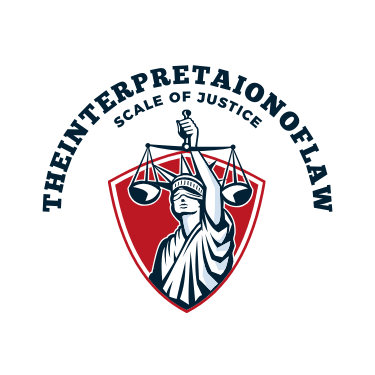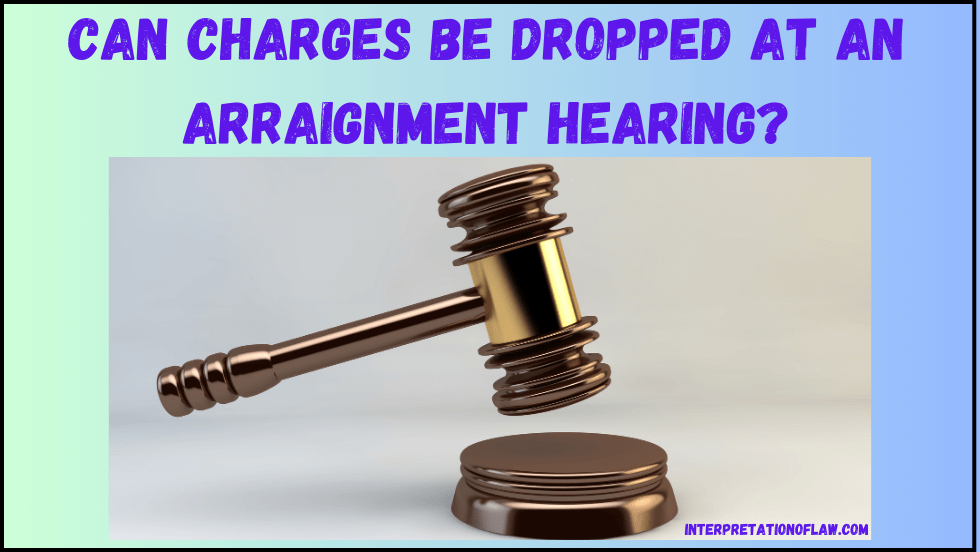An arraignment is the first court hearing in a California criminal case. It is where you are formally charged with a crime and given an opportunity to enter a plea, usually “not guilty.” The judge can also address issues of bail and restraining orders at this hearing.
The arraignment is an important step in the criminal justice process, and it is essential to understand your rights and what to expect during this hearing. In this article, our
California criminal defense lawyers will illustrate the arraignment process in detail, including whether or not charges can be dropped at an arraignment hearing. We will also discuss whether charges can be changed after arraignment. So, let’s dive in.
What are Arrangement Hearings?
An arraignment hearing is the initial formal court proceeding in the California criminal law process following your arrest and the filing of criminal accusations against you. Your arraignment is where:
- The court will officially accuse you of a crime and inform you about your Constitutional rights.
- You will be informed about the criminal charges filed against you.
- Your attorney will present arguments against any pending orders that may apply to your case, including a restraining order. and
- you will enter an initial plea.
The arraignment hearing occurs once the prosecuting agency, typically the local District Attorney‘s office or the local City Attorney’s office, has officially filed charges. The timing of the arraignment is strictly regulated according to California law.
An arraignment is usually the initial court proceeding in a criminal case. During the arraignment hearing, defendants are informed of the charges that have been filed against them and their legal and constitutional rights. Subsequently, they can enter a plea of not guilty, guilty, or no contest.
When an attorney represents a client in court, they have the authority to:
- Waive the right to have the charges read aloud.
- Inform the judge that the client has already been advised of their rights.
During an arraignment, the accused must be informed of several necessary rights, including:
- The right to legal representation.
- The right to confront and question witnesses.
- The right against self-incrimination.
- The right to reasonable bail.
- The right to a speedy trial.
Six possible pleas can be entered during an arraignment:
1. Guilty.
2. Not guilty.
3. No contest (nolo contendere).
4. Former judgment of conviction or acquittal.
5. Double jeopardy.
6. Not guilty because of insanity. If requested, the judge must grant a reasonable continuance of the arraignment, allowing the accused time to consult with an attorney after learning the charges.
Can charges be dropped at an arrangement hearing?
An arraignment hearing occurs regardless of whether you are charged with a felony or a misdemeanor. During the arraignment hearing, you are informed about the specific charges brought against you and your rights as a defendant.
While it is uncommon to have the charges dropped at an arraignment hearing, it is possible. If the accusations against you are less severe, there is a higher likelihood of having the charges dropped. However, whether the charges will be declined depends on your case’s specific details.
How to Drop Charges at an Arrangement Hearing?
During an arraignment hearing, the prosecutor may choose to drop the charges against you if they feel there is insufficient evidence or a lack of probable cause to pursue the case. This decision is not made lightly and will only happen after considering all available evidence carefully.
Additionally, if the prosecution realizes that they do not have a strong case against you, they may offer a plea bargain. This is where they will offer to reduce the charges or penalties in exchange for a guilty plea. It is crucial to consult with an experienced criminal defense lawyer before accepting any plea deals offered by
the prosecution.
In rare cases, the judge may also dismiss the charges during an arraignment hearing if there are glaring legal or procedural errors made by law enforcement or the prosecution. These errors could include a lack of probable cause for the arrest or violating your constitutional rights.
However, it is essential to note that an arraignment hearing is only the beginning of the criminal justice process. The charges can still be changed or dropped during the legal proceedings, depending on the evidence presented and negotiations between the defense and prosecution.
Can Charges be Changed after Arragement?
Yes, charges can be changed after the arraignment hearing. This can occur if new evidence surfaces orif the prosecution decides to amend the charges based on negotiations with the defense.
It is also essential to note that even if you enter a plea of not guilty at your arraignment hearing, it does not mean that you cannot change your plea later on. Your defense attorney may advise you to enter a not guilty plea at the arraignment hearingto give them more time to gather evidence and negotiate with the prosecution.
In some cases, changing your plea during subsequent court hearings may be in your best interest after new developments or evidence is presented. Ultimately, the decision to change charges or pleas rests between the prosecution and the judge.
What Charges Can be Dropped at Arrangement Hearing?
Any charges brought against you could be dropped at an arraignment hearing. However, as mentioned earlier, this decision is made with seriousness and will depend on the specific details of your case.
Less severe charges may have a higher chance of being dropped at an arraignment hearing. These could include misdemeanor offenses or lesser felony charges with insufficient evidence. If the charges are dropped during an arraignment hearing, it does not necessarily mean you will be completely free of legal consequences. The prosecution may still have the option to refile charges against you if they obtain more evidence or decide to pursue the case again.
What can be the Probable Outcomes of an Arrangement Hearing?
The outcomes of an arraignment hearing can vary depending on the individual case. Here are some possible scenarios that may occur:
- The charges remain the same, and you enter a plea of not guilty.
- The charges are reduced or amended, and you enter a plea bargain with the prosecution.
- The charges are dropped entirely by the prosecution.
- You change your plea from not guilty to guilty or no contest.
- The judge grants a reasonable continuance for the arraignment hearing to allow time for the accused to obtain legal representation.
It is essential to consult with an professional criminal defense lawyer who can advise you through the arraignment process and help you achieve the best possible outcome. They can also advise you on your rights, potential defenses, and potential consequences of pleading guilty or no contest.
Can charges be dropped at formal arraignment?
Yes, charges can be dropped at a formal arraignment. A formal arraignment typically takes place after the initial arraignment hearing and involves the defendant entering a plea of guilty or not guilty.
During a formal arraignment, the prosecution may choose to drop the charges against you if they feel that there is insufficient evidence or a lack of probable cause to pursue the case. Your defense attorney may also negotiate with the prosecution for a plea deal, which could result in reduced charges or penalties.
FAQs
Can a Case Be Dismissed at the Pretrial Hearing?
Indeed, it is possible for a case to be dismissed during the pretrial hearing. The judge will typically decide on any pretrial motions to dismiss the case. Therefore, if these motions prove successful, your case may be dismissed at the pretrial stage.
Can a Prosecutor Change Charges During Trial?
Yes, a prosecutor can potentially change charges during trial. This can occur if new evidence warrants amending the original charges or the prosecution and defense agree to negotiate a plea deal. However, the judge overseeing the case must approve any charge changes.
How Long After Arraignment is Sentencing?
The length of time between arraignment and sentencing can vary depending on the complexity of the case, negotiations between the prosecution and defense, and any potential delays in the court system. Sometimes, sentencing may occur immediately after a guilty plea is entered at the arraignment hearing.
In others, it may take several weeks or even months for a trial to conclude and a sentence to be handed down by the judge. It is essential to discuss the potential timeline with your defense attorney, as they will better understand how long the process may take based on the specifics of your case. The time between arraignment and sentencing can range from days to several months.
Final Words
The arraignment hearing is a critical step in the criminal justice process and can potentially significantly impact the outcome of your case. It is crucial to take this stage seriously and seek legal representation to protect your rights and receive a fair trial.
Remember, charges can be changed or dropped during an arraignment hearing, so it is essential to have an experienced defense attorney by your side to guide you through the process and help you achieve the best possible outcome.
So, consulting with a knowledgeable criminal defense lawyer as soon as possible after being charged with a crime is essential. They can provide guidance and support throughout the arraignment process and work towards achieving a favorable resolution for your case.

Carter Wilson is a licensed lawyer with over 10 years of experience in various legal fields. He is passionate about making law accessible to the general public and helping individuals navigate through complex legal matters.

